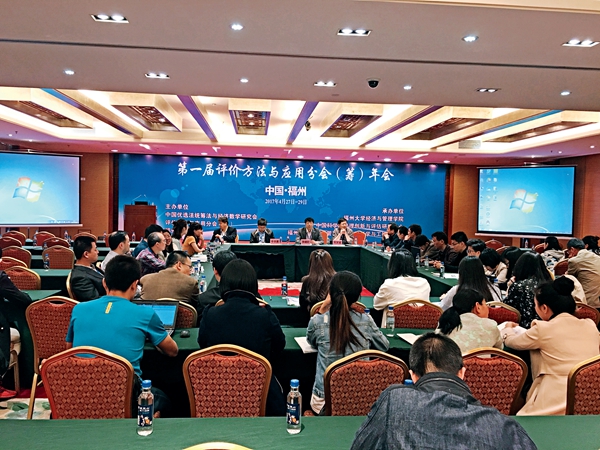An Innovator of Management Science
China Today by ,January 17, 2018 Adjust font size:
Devoted to Management Science
Wang Yingming’s research covers such fields as decision theory and methodology, data envelopment analysis, rule base reasoning as well as quality function deployment. In 2007, he took the lead in putting forward two methods, namely “analytic algorithm of the evidential reasoning approach for multiple criteria decision making” and “the global optimization approach for combining and normalizing interval evidence.” These methods are lauded by his foreign peers as not only simplifying the calculation of the evidential reasoning approach for multi-criteria decision-making, but also opening new paths of related development and application, and have since been widely cited in academia.
As a leader in management science and engineering, Wang has published a number of papers in recent years. He values theoretical innovation, and encourages his students to publish papers in international academic journals. In his opinion, management science is a highly applicable discipline, and its most prominent feature is “learning by practice.” However, he also regretfully pointed out that paying insufficient attention to “learning by practice” is a prominent problem in China’s management science community.

The First Evaluation Methodology and Application Conference was held in Fuzhou, Fujian Province, in April 2017.
Wang in his research applies the theories and methods of management science to the design of merger and acquisition plans, the optimization evaluation of flexible manufacturing systems, the evaluation of business competitiveness, and the exploration of sustainable development models, and has achieved ample results. In 2009, he published a research paper on evidence-based consumer preference prediction models, which drew the attention of Unilever. Graham Cleaver, head of the company’s research and development department, commented that the article represents a novel method, and sent Wang a mail seeking cooperation. Wang’s team is also in cooperation negotiation with other entities such as Mengchao Hepatobiliary Hospital of Fujian Medical University and New Kaibin Property Services Co., Ltd.
According to Wang, after years of hard work, China has made tangible progress in the theoretical research of management science, and is standing neck and neck with developed countries in some aspects. The biggest gap between China and the West in this realm is found in the combination of theoretical innovation and industrial application. To solve this problem, China’s management scholars are expected to focus on issues at the frontier of management science and major theoretical issues for research and innovation. To achieve world leading theoretical research is what has been advocated by the National Natural Science Foundation of China (NSFC). Meanwhile, the theories and methods of management science must be put into practice to solve the management problems in China. Building on the need for designing solutions for practical and real problems, management theories can be tested, implemented and refined to provide optimal results in a Chinese setting, keeping in mind the local culture, characteristics and traits. This is also something that has been advocated by the NSFC and China can definitely improve upon. Furthermore, it can be seen that enterprises do not seem to be paying the attention that they need to, as relevant academic conferences internationally are attended and followed by corporate professionals, but in China they are mostly attended by students and academics. It is from participation and interaction on these platforms that the latest theories and methods are shared. Thus, to achieve synergy between theories and their implementation, it is vital to have active corporate and academic cooperation.